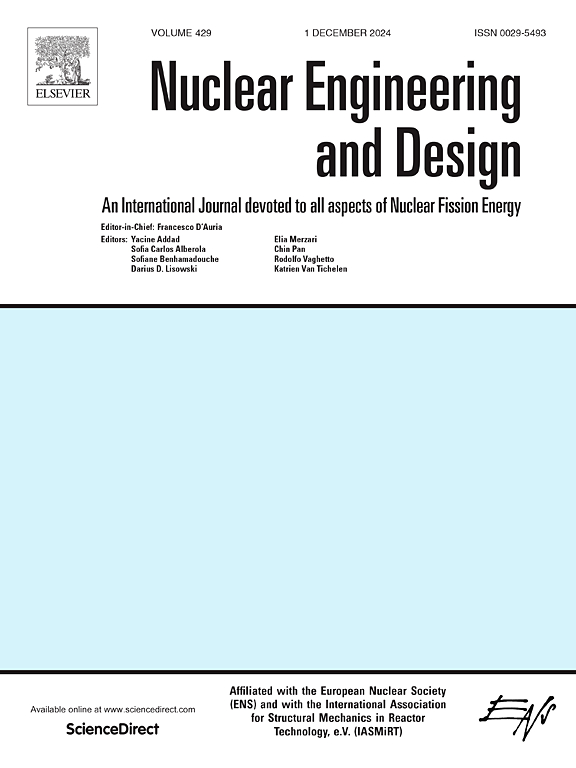空间热电子核反应堆增益调度模型预测控制
IF 1.9
3区 工程技术
Q1 NUCLEAR SCIENCE & TECHNOLOGY
引用次数: 0
摘要
空间热离子核反应堆具有大延迟和强非线性的特点。传统的控制系统很难获得满意的性能。本研究采用模型预测控制(MPC)。通过预测模型和目标性能函数对控制律进行设计和优化。解决了大滞后系统控制性能差的问题,实现了快速调节。设计了不同功率水平下的模型预测控制器。利用增益调度方法提高了非线性系统的跟踪精度。这种方法可以使stnr在全功率范围内稳定运行。在典型运行场景下的仿真分析表明,基于增益调度的模型预测控制系统比传统控制系统具有更小的超调量和稳定时间。主要参数的波动明显减小。因此,所提出的增益调度模型预测控制为STNR的控制提供了一种很有前途的策略。本文章由计算机程序翻译,如有差异,请以英文原文为准。
Gain scheduling model predictive control for a space thermionic nuclear reactor
Space thermionic nuclear reactor (STNR) has the characteristics of large delay and strong nonlinearity. It is difficult to obtain the satisfied performance with traditional control system. Model prediction control (MPC) is adopted in this study. The control law is designed and optimized through the prediction model and objective performance function. The problem of poor control performance of large delay system is solved and fast regulation is achieved. The model predictive controllers are designed at different power levels. Gain scheduling method is utilized to improve the tracking accuracy of the nonlinear system. This approach enables stable operation of STNRs across the full-power range. It is shown from the simulation analysis under the representative operational scenarios that the model predictive control system based on gain scheduling has smaller overshoot and settling time than the traditional control system. The fluctuations of major parameters are reduced significantly. Therefore, the proposed gain scheduling model predictive control provides a promising strategy to the control of STNR.
求助全文
通过发布文献求助,成功后即可免费获取论文全文。
去求助
来源期刊

Nuclear Engineering and Design
工程技术-核科学技术
CiteScore
3.40
自引率
11.80%
发文量
377
审稿时长
5 months
期刊介绍:
Nuclear Engineering and Design covers the wide range of disciplines involved in the engineering, design, safety and construction of nuclear fission reactors. The Editors welcome papers both on applied and innovative aspects and developments in nuclear science and technology.
Fundamentals of Reactor Design include:
• Thermal-Hydraulics and Core Physics
• Safety Analysis, Risk Assessment (PSA)
• Structural and Mechanical Engineering
• Materials Science
• Fuel Behavior and Design
• Structural Plant Design
• Engineering of Reactor Components
• Experiments
Aspects beyond fundamentals of Reactor Design covered:
• Accident Mitigation Measures
• Reactor Control Systems
• Licensing Issues
• Safeguard Engineering
• Economy of Plants
• Reprocessing / Waste Disposal
• Applications of Nuclear Energy
• Maintenance
• Decommissioning
Papers on new reactor ideas and developments (Generation IV reactors) such as inherently safe modular HTRs, High Performance LWRs/HWRs and LMFBs/GFR will be considered; Actinide Burners, Accelerator Driven Systems, Energy Amplifiers and other special designs of power and research reactors and their applications are also encouraged.
 求助内容:
求助内容: 应助结果提醒方式:
应助结果提醒方式:


